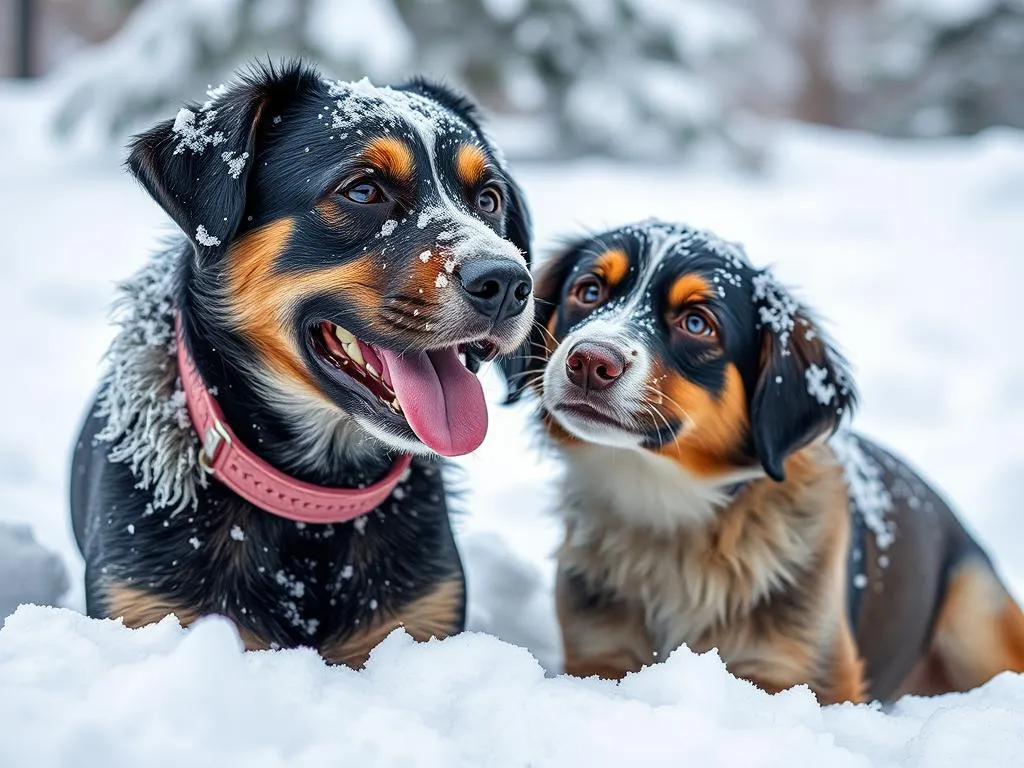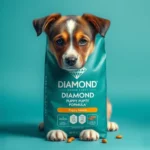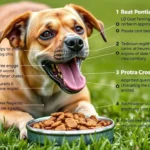
Introduction
Overview of Dog Nutrition
Dog nutrition is a crucial aspect of pet ownership that often gets overlooked. Ensuring your furry friend receives a balanced diet is essential for their overall health and well-being. Dogs require a diet rich in various nutrients to thrive, and understanding their specific needs helps prevent common misconceptions about what is suitable for them.
Many pet owners may believe that dogs can eat many human foods, including treats like snow cones. However, not all human foods are safe for dogs. Understanding the nutritional needs of dogs and the risks associated with certain treats is vital for responsible pet care.
Purpose of the Article
In this article, we will explore the question: Can dogs have snow cones? Alongside this inquiry, we will highlight the nutritional considerations that every dog owner should keep in mind when choosing treats and snacks for their pets.
Understanding Dog Nutrition
Nutritional Needs of Dogs
Dogs, like humans, require a variety of nutrients to maintain their health. Their diet should include macronutrients as well as micronutrients.
Macronutrients: Proteins, Fats, and Carbohydrates
- Proteins are essential for growth, maintenance, and energy. They help build and repair tissues and are fundamental for a dog’s muscle health.
- Fats provide a concentrated source of energy and are necessary for the absorption of certain vitamins. They also contribute to healthy skin and coat.
- Carbohydrates serve as a source of energy and play a role in digestive health. Though not as critical as proteins and fats, they can be beneficial when included in moderation.
Micronutrients: Vitamins and Minerals
Vitamins and minerals are vital for various bodily functions, including immune response and bone health. Key vitamins for dogs include A, D, E, and B-complex vitamins. Important minerals include calcium, phosphorus, and potassium.
Common Dog Food Ingredients
When selecting dog food, it’s crucial to understand which ingredients are beneficial and which should be avoided.
Overview of High-Quality Dog Food Ingredients
Look for dog foods that list real meat as the first ingredient, along with whole grains, vegetables, and healthy fats. Ingredients such as sweet potatoes, carrots, and blueberries are excellent additions that provide additional nutrients.
Ingredients to Avoid in Dog Food
Avoid dog foods that contain fillers, artificial preservatives, and low-quality meat by-products. Common ingredients to steer clear of include corn, soy, and certain artificial colors and flavors.
Treats and Snacks for Dogs
Safe Treat Options
Treats can be an enjoyable part of your dog’s diet, but choosing the right ones is important.
Fruits and Vegetables Suitable for Dogs
Many fruits and vegetables are safe for dogs and can even be nutritious. Some dog-safe options include:
- Apples (without seeds)
- Carrots
- Blueberries
- Green beans
Commercial Treats vs Homemade Treats
While commercial treats can be convenient, homemade treats often allow for better control over ingredients. You can create delicious snacks using dog-friendly ingredients, ensuring they are healthy and safe.
The Role of Treats in a Dog’s Diet
Treats serve multiple purposes in a dog’s life. They can be used as rewards during training or as a way to show affection. However, it’s essential to consider the caloric content and ensure that treats do not exceed more than 10% of a dog’s daily caloric intake.
Can Dogs Have Snow Cones?
What Are Snow Cones?
Snow cones are a popular summer treat made from finely shaved ice topped with flavored syrups. They come in various flavors, often containing sugar, artificial colorings, and other additives that may not be suitable for dogs.
Is it Safe for Dogs?
The short answer is that while the ice in snow cones is not harmful to dogs, the syrups and toppings can pose risks.
Analysis of the Main Components
- Ice: Plain ice is generally safe for dogs to consume in moderation, especially during hot weather, as it can help keep them cool.
- Syrups: Most commercial snow cone syrups are loaded with sugar and may contain artificial sweeteners like xylitol, which is toxic to dogs. Moreover, excessive sugar can lead to obesity and dental issues.
- Toppings: Common toppings, such as whipped cream or chocolate sauce, are not suitable for dogs and can lead to digestive upset.
Healthier Alternatives to Snow Cones
If you’re looking for a refreshing treat for your pup during the warm months, consider these healthier alternatives:
- Frozen Fruit Pops: Blend dog-safe fruits with yogurt or water and freeze them in molds.
- Banana Ice Cubes: Blend bananas with a little water, pour into ice cube trays, and freeze for a cool snack.
- Chicken or Beef Broth Ice Treats: Freeze low-sodium chicken or beef broth in ice cube trays for a savory treat.
Potential Risks of Feeding Dogs Human Foods
Understanding Toxic Foods for Dogs
While it may be tempting to share your food with your furry friend, some human foods can be toxic to dogs.
Foods That Are Harmful to Dogs
Common foods that should be avoided include:
- Chocolate: Contains theobromine, which is toxic to dogs.
- Grapes and Raisins: Known to cause kidney failure in dogs.
- Onions and Garlic: Can lead to gastrointestinal distress and damage red blood cells.
Symptoms of Food Poisoning in Dogs
Signs of food poisoning in dogs can include vomiting, diarrhea, lethargy, and abdominal pain. If you suspect your dog has ingested something harmful, contact your veterinarian immediately.
How to Introduce New Foods to Your Dog
When introducing new treats or foods into your dog’s diet, it’s essential to do so gradually.
Guidelines for Safely Introducing New Treats
- Start with small amounts and monitor your dog for any adverse reactions.
- Keep a close eye on their behavior and digestion after introducing new foods.
Monitoring for Allergic Reactions or Intolerances
Some dogs may develop allergies or intolerances to certain foods. Signs can include itching, gastrointestinal upset, or changes in behavior. If you notice any of these signs, consult with your veterinarian.
Expert Opinions and Recommendations
Veterinarian Insights on Dog Nutrition
Consulting with a veterinarian is invaluable when it comes to your dog’s diet. They can provide personalized recommendations based on your dog’s age, breed, and health status.
Recommendations for Dog-Safe Treats
Veterinarians often recommend sticking to treats specifically formulated for dogs, as these are designed to meet their nutritional needs while avoiding harmful ingredients.
Real-life Experiences from Dog Owners
Many dog owners have experimented with feeding their pets human foods, with varying degrees of success.
Anecdotes About Feeding Dogs Human Foods
Some owners share their positive experiences with homemade treats, while others have learned the hard way about the dangers of certain human foods.
Tips from Dog Owners on Frozen Treats
Creating frozen treats for dogs can be a fun and rewarding experience. Many owners suggest involving their dogs in the process, allowing them to choose their favorite flavors from dog-friendly ingredients.
Conclusion
In summary, while dogs can enjoy some human foods, snow cones are not an ideal treat due to their high sugar content and potential harmful additives. Understanding your dog’s nutritional needs and choosing safe treats is essential for their health.
As a responsible pet owner, it’s important to consult with a veterinarian about your dog’s diet and treat options. This ensures that you are providing the best care possible for your furry friend.
Feel free to share your experiences with dog treats in the comments! If you have any questions about dog nutrition and safety, don’t hesitate to ask.









